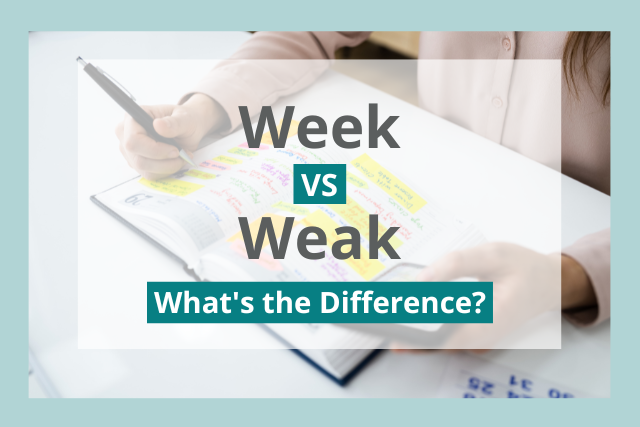
The words week and weak are often confused because they sound similar. Do you know the difference?
Week means any period of seven consecutive days when used as a noun.
Weak means lacking in force (usually strength) or ability when used as an adjective.
Out of the two words, 'week' is the most common. It appears about two times more frequently than 'weak'.
The Difference Between Week vs Weak
Which is correct 'was too weak to' or 'was too week to'?
The right expression is 'was too weak to'. These phrases are often confused because they sound similar.
What's the right phrase 'were too weak to' or 'were too week to'?
The right expression is 'were too weak to'. These phrases are often confused because they sound similar.
Is the correct phrase 'too weak to resist' or 'too week to resist'?
You should use 'too weak to resist'. These phrases are often confused because they are homophones.
Is the correct expression 'too weak to stand' or 'too week to stand'?
The correct phrase is 'too weak to stand'. These phrases are often confused because they have the same pronunciation but different meanings.
What's the correct phrase 'are too weak to' or 'are too week to'?
The right expression is 'are too weak to'. These phrases are often confused because they sound the same.
Some synonyms of week are: period, period of time, and workweek.
Some synonyms of weak are: anaemic, human , soft , fragile, and wimpish.
